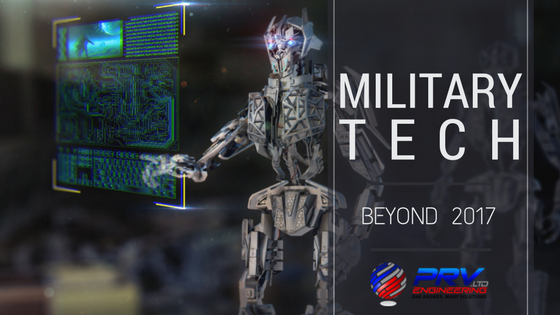
Military Technology: Applications of Autonomous Systems
Whether it’s conspiracy theories, Hollywood or reality; there’s certainly no shortage of newsworthy mentions of new military technology being developed. Autonomous systems, for example, is vital to solve many of the most difficult problems we currently face. These include exploring uncharted oceans, deep space, providing aid in emergency situations and probably more applications in the defense industry.
Already we have Apple’s Siri, Amazon’s Alexa and Microsoft with Cortana. These systems all operate on autonomous technology and the demand for more such innovations is just going to increase. Engineers using complex mathematical systems and algorithms, teaches the system how to learn on it’s own and how to adapt in real-life scenarios. We need to further enhance the technology but what we’ve achieved in the last decade is astonishing.
Machines can go where humans can’t, at least not yet, and with groundbreaking technology, extensive research & development, applications of Autonomous Systems is almost limitless. Who knows what’s next in future military technology?
Human Machine Collaboration
Our human thought processes combined with the tactical prowess and speed of a computer is phenomenal. The human-machine collaboration allows machines to help us mere mortals make better decisions faster and one of the current technologies is wearable electronics. This provides military personnel with combat apps that can potentially help them in every possible situation providing continuous, real-time contingencies.
Going beyond 2017, especially with advancements in military technology, automated maintenance drones are a real possibility. They will be able to detect faults or damage and then repair it themselves without the assistance of an engineer. Trials of autonomous maintenance drones are already being done in the oil and gas industry. Before long, this concept will be applied in the defense industry as well.
The commercial use of drones in the consumer market is nothing new but there are other applications for a number of industries like:
- HD stills and video – document nature cinematography for example
- surveying, mapping for a number of companies like civil engineering, property developers among others
- quality and damage inspections (wind turbines, power lines, railroads, towers and more)
- security and monitoring – attachable surveillance sensors and monitors
- search and rescue – ideal for police, firefighters and sea rescue organisations
- unmanned cargo – can carry supplies like medicine, supplies or tools
Defense Industry Applications
There are even more potential advantages of Autonomous Systems for the defense industry.
- Underwater visual odometry for passive surveillance and navigation
- Advanced Doppler radar physiological sensing technique for drone detection
- UAV path planning in absence of GPS
- Mission planning, execution and modeling for teams of unmanned vehicles
- Robust drone detection for day/night counter-UAV with static VIS and SWIR cameras
The UK Royal Navy is currently using drone technology to scan Navy vessels for damage as it greatly reduces the time and costs associated with maintenance. Due to the sheer size and the area naval ships cover, inspections can now take place in hours instead of days. Fewer people are involved in the process and it can even be done while at sea.
The US army has also invested heavily in VR to train soldiers in an attempt to improve skills, save costs and greatly increase troop readiness. IFS partner XMReality has designed a military version of their AR solution for the Swedish Defense Materiel Administration (FMV).
Whether we agree with it or not, the future is in AI and as with most tech, there will be a few wrinkles to iron. It will be beneficial then to bring together researchers from machine learning, pattern recognition, robotics, and control theory to optimize the end-result in everyone’s best interest.
So what do you think the biggest trends will be in military technology over the next 5 years? Leave your comments in the section below; we’d like to hear your thoughts.
PRV Engineering specialises in precision engineering and we are a one-stop shop offering you all the services under one roof. We manufacture for an expanse of industries including Automotive, Rail, Construction, Aerospace and Defense among others. Our diverse range of products and services include Busbars, 5-Axis Machining, Toolmaking, Spray painting, Powder Coating and Shot blasting.
This site uses Akismet to reduce spam. Learn how your comment data is processed.


 Mail:
Mail: 




Leave a Comments